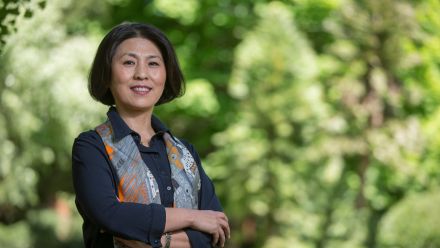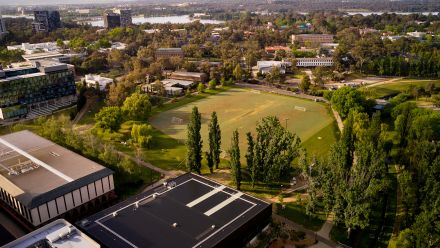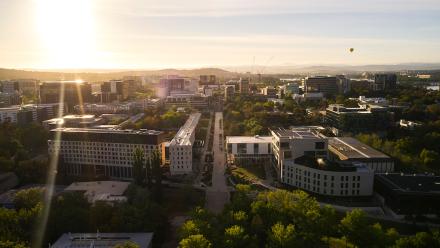ANU innovation boosting green and manufacturing revolutions
A new training centre hosted by The Â鶹´«Ã½AV National University (ANU) is upskilling the next generation of researchers in cutting-edge 3D imaging and analysis technology to help repair bones, safely store CO2, deactivate viruses on surfaces and recycle car parts among a range of critical applications.
The ARC Training Centre for Multiscale 3D Imaging, Modelling and Manufacturing, M3D Innovation, is using a "disruptive" digital imaging, analysis, modelling and manufacturing technology developed at ANU for more than 15 years.
The micro-imaging technology provides users with 3D "super vision" into a range of materials at scales ranging from metres to 10 nanometres - a measurement 1,000 times smaller than the width of a human hair.
The technology was originally developed by a team of researchers with M3D Innovation Director, Professor Mark Knackstedt, who has won a Eureka Prize as well as an ENI award - the 'Nobel prize' for energy resources research - for his innovation.
"Our centre brings together researchers from ANU and Queensland University of Technology, 15 industry partners and end users to harness the 'super-power' of advanced imaging and analysis technologies," Professor Knackstedt said.
"We are building a vibrant research training environment and creating a workforce that is expert in applying the new technology to a range of new industry sectors and mentoring PhD students and early career researchers in industrial collaboration and commercialisation.
"And we've already made some incredible strides through a range of exciting projects. This includes using the technology to investigate green steel production via hydrogen based processes; safely store CO2 in aquifers to fight climate change; recycling car parts for a circular economy; regenerating bones with biodegradable scaffolds; and designing custom bone implants.
"Our partners at QUT have developed new technology during the COVID-19 pandemic, using etching techniques to roughen surfaces to deactivate bacteria and viruses. This is a technique that could be used to deactivate COVID-19 on metal surfaces in hospitals and clinical settings."
M3D Innovation is funded by the Â鶹´«Ã½AV Government under the Â鶹´«Ã½AV Research Council Industrial Transformation Training Centres scheme. "We are really grateful for the Â鶹´«Ã½AV Government's investment and support for this really important field of science and for the translation to industry partners," Professor Knackstedt said.
"ANU and Australia are world-leaders in this space. Our work at M3D Innovation will boost our capacity and deliver new graduates and researchers with critical skills and knowledge across novel manufacturing, modelling and imaging."


